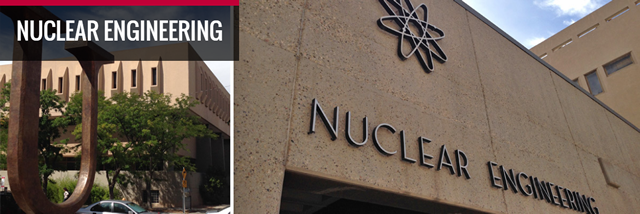
Nuclear Engineering ETDs
Publication Date
Spring 4-27-2020
Abstract
A new reactor model of the Washington State University TRIGA was developed in the SCALE neutron transport code, and its fidelity was verified by comparison to MCNP and available data for several reactor parameters. The model was used to characterize irradiations designed to produce the short-lived actinides 237U and 239U, two key isotopes for nuclear forensics. These short-lived actinides, their decay daughters 237Np and 239Pu, and total fissions (via 99Mo) were measured in irradiated foils at Los Alamos National Laboratory and other labs with good agreement among parent/daughter pairs and among labs. The laboratory-measured isotope ratios were used as a benchmark for the model determination of reaction rates. The flux distribution in the foils was also determined. Finally, using the continuous energy TSUNAMI-3D module of SCALE, a sensitivity/uncertainty analysis was performed to determine the effects on foil reactions caused by other system-wide reactions and by uncertainties in the known cross-sections.
Keywords
nuclear forensics, short-lived actinide, radiochemistry, sensitivity analysis, uncertainty analysis, MCNP
Sponsors
Los Alamos National Laboratory
Document Type
Thesis
Language
English
Degree Name
Nuclear Engineering
Level of Degree
Masters
Department Name
Nuclear Engineering
First Committee Member (Chair)
Christopher Perfetti
Second Committee Member
Anil Prinja
Third Committee Member
Robert Busch
Recommended Citation
Hinrichs, Kimberly A.. "Characterization of Uranium Foil Irradiations at the WSU TRIGA Reactor Using a New Reactor Model in SCALE." (2020). https://digitalrepository.unm.edu/ne_etds/102
